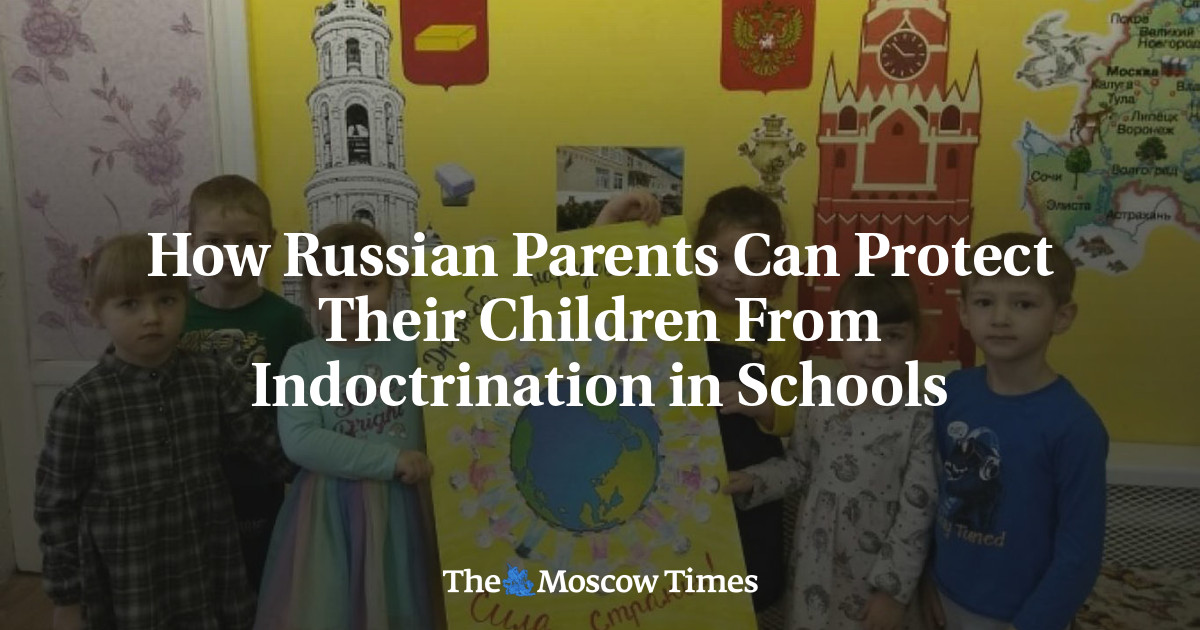
How Russian Parents Can Protect Their Children from Indoctrination in Schools
How did your country report this? Share your view in the comments.
Diverging Reports Breakdown
How Russian Parents Can Protect Their Children From Indoctrination in Schools
Starting on Sept. 1, trial runs of “Important Conversations’ began in kindergartens. The younger you indoctrinate a child, the harder it is to set them right, writes Alexander Nekrassov. The content of these classes is outlined in vague themes of kindness, honesty and justice. If ordered to raise the rhetorical temperature, teachers will be steered toward teaching children that Ukrainians are “Ukro-Nazis” and with “Judeo-Banderites,” Nekrachov says.. It will be decided whether to roll them out in all kindergarten in Russia. It is reasonable to assume that will be the case, as President Vladimir Putin publicly endorsed the initiative. It was once unthinkable to bring a convicted murderer into a classroom to share his “experience” Now, so-called “special military operation veterans” — men, often straight out of prison, who killed Ukrainian schoolchildren — roam schools.
The Columbia study also showed indoctrination is most successful when built on preexisting societal prejudices. In the case of Russia, this is the long-stoked fear that the country is surrounded by enemies, first foreign, then hidden internal agents of influence. This fear was deliberately cultivated for decades. Another deeply embedded idea is that of Russia’s special status. Only the state can protect us from external enemies who supposedly live only to impose an alien way of life. Thus, a fully indoctrinated Russian will conclude that they will never know the whole truth and they are powerless, even if they did. Step by step, systematic manipulation hollows out independent morality. It was once unthinkable to bring a convicted murderer into a classroom to share his “experience.” Now, so-called “special military operation veterans” — men, often straight out of prison, who killed Ukrainian schoolchildren — roam schools. Each example of moral erosion is harder to ignore. Yet people do ignore it, while a new morality takes root before our eyes. Indoctrination also seeps in through youth groups and children’s camps. In early Putinism, the clumsy youth group Nashi was mostly a money-laundering scheme, remembered for tasteless stunts. Today’s organizations are far more systematic. Take the Movement of the First, which screws itself tightly into daily life. Russian friends tell me neighbors and relatives are thrilled that kids can go to “excellent camps with an ideological bent” instead of jumping off garages or scrolling TikTok. It is a cleverly designed tactic. Who could oppose unity, solidarity and helping the weak? But the idea that you must help the weak is easily followed by the idea that you should defend them with violence. Hence, weaving camouflage nets for use in conflict or drafting teenagers into drone assembly plants. Neither parents nor their children are told that they are not only building weapons to kill innocent people, but also becoming legitimate military targets.
